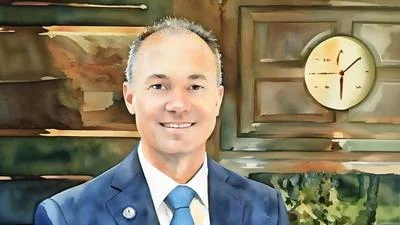David Weinberg is a senior fellow at Israel’s Misgav Institute for National Security and Zionist Strategy and a veteran of the Israeli think tank world.
An American-born Israeli who moved to the country 35 years ago, Weinberg has served in the Prime Minister’s Office and worked closely with Natan Sharansky. He has also directed anti-Semitism initiatives and written widely on defense, diplomacy, and wine—an unusual but telling combination for someone whose view of Israel is as much about identity and faith as it is about strategy and survival.
Weinberg says the land of Israel’s agricultural rebirth, especially its flourishing wine industry, is “100% biblical.” He cites Ezekiel 36, noting how “the land of Israel is giving its magnificent fruit first and foremost, grapes…to the land’s indigenous people, the Jewish people.” His passion for Israeli wine once drew criticism from Al Jazeera, accusing him of being “drunk on Zion and wine.” He embraced the insult. “I’m very proud of that. If you go to my website, the tagline is ‘Drunk on Zion.’”
Weinberg believes Israel’s strength should not be defined solely by security concerns, but by a confident embrace of its historical and spiritual legacy. “Jews are most respected when they’re self-respecting,” he says, echoing Rabbi Jonathan Sacks. “Those are the Jews who can have the greatest impact.”
He criticizes Israeli public diplomacy for focusing too narrowly on security: “If you base your argument only on our security…ultimately you’re going to lose up against the ‘rights’ discourse.” For Weinberg, Israel’s legitimacy comes from its biblical and indigenous connection to the land—what he calls “a discourse of rights no less than our adversaries.”
That authenticity, he says, has come to the forefront since the Hamas invasion of October 7, 2023. “Israelis are digging deeper into their age-old ancient faith,” he explains. Even among secular soldiers, there’s a turn toward tradition: “Many Israeli soldiers…are asking to wear tzitzit…It’s a way of connecting to a level of protection from the heavens.” He sees this as a spiritual revival in response to renewed anti-Semitic violence, especially from Iran-backed proxies. “We realize, unfortunately, that we are on a long haul…and we have to have the faith and the resilience to fight on.”
Weinberg believes Israel’s current position is far stronger than it was 20 months ago. “Israel is in a much better place,” he says. “It has the upper hand…and has begun to restore its deterrent power.” He notes ongoing Israeli strikes against Iranian proxies like Hamas, Hezbollah, and the Houthis. “Israel is projecting strength again today…to lead the region…not through hackneyed reliance on failed diplomatic formulas…but through a projection of strength.”
Iran, however, remains the critical threat. “The campaign…is not over until Iran’s nuclear effort and its ballistic missile array are finished off,” he warns. Weinberg is deeply skeptical of renewed U.S. diplomacy with Iran. “Anything short of that will not be acceptable to Israel–we cannot afford another JCPOA,” referring to the 2015 Iran deal. He believes a military interdiction is increasingly likely: “I suspect that we’re going to be moving…to military interdiction of Iran’s nuclear programs sometime over the coming year.”
Contrary to isolationist warnings, Weinberg argues that striking Iran would not necessarily lead to another Iraq-style war. “Iran is a weak country…Its economy is in shambles…The regime is increasingly finding it difficult to clamp down on internal dissent.” A focused strike, he contends, “could lead to regime change without drawing the entire region into broader war.” If Israel initiates the attack, “Washington will kick in with auxiliary offensive and defensive moves,” he predicts.
He has strong opinions about Iran’s intentions. “Iran does not hide its overarching revolutionary ambitions,” he says. “They refer to Israel as the little Satan and to the United States as the Great Satan.” A nuclear Iran would embolden terrorism, subversion, and alliances with Russia and China. “Under the cover of a nuclear umbrella, their boldness will only grow.”
Yet Weinberg insists that the greatest threat facing Israel is not external. “My greatest concern is the tone of debate in Israel,” he says. “We’ve become a very divided and angry people.” He urges a return to biblical principles of justice and compassion: “The biblical prophets…talk about how Israel will succeed when they care for the poor, the widows, the orphans, and treat each other with respect.”
Weinberg sees a potential for a better future in “a world where the Abraham Accords expand… where partnership with Israel and the West grows.” But that vision depends on Israel remaining strong. “Israel needs to be feared…to be dominant, not just loved,” he says. Those who try to constrain Israel “are doing all peoples in the Middle East an enormous disfavor.”
For Weinberg, strength and faith are inseparable. “We’re in the grand drama of the Jewish people’s return to the land of Israel,” he says. In that story, he insists, “Israel will succeed.”








